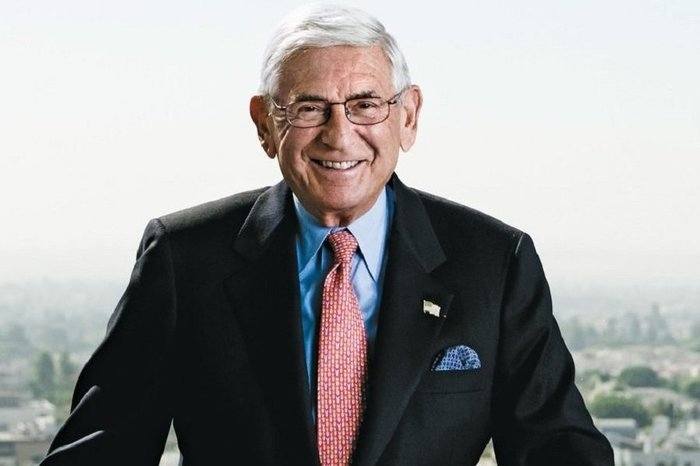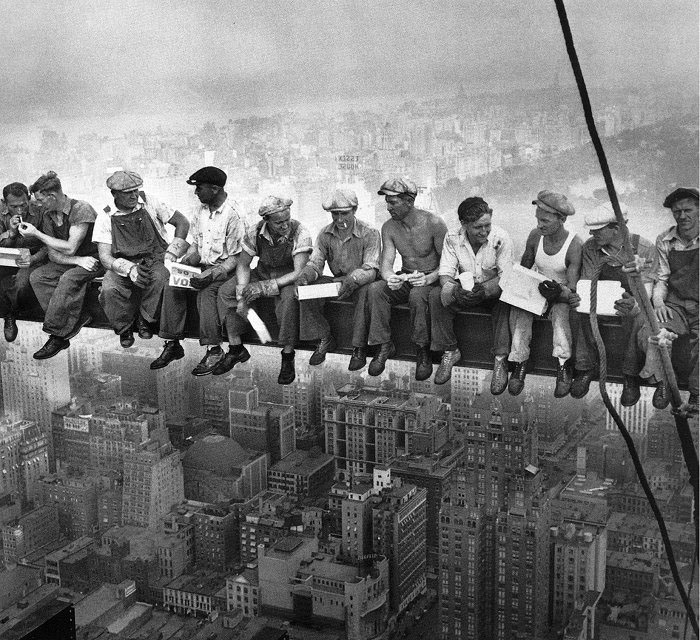Dans ma quête d’inspiration des meilleurs entrepreneurs de notre époque, je me suis arrêté ce dernières semaines sur l’autobiographie d’Eli Broad, l’un des deux fondateurs du célèbre promoteur Kaufman & Broad (K&B). Toujours vivant, il a une particularité peu connue : il est le seul à avoir créé 2 sociétés du Fortune 500 (le classement 500 plus grandes entreprises américaines) dans 2 domaines différents. Outre K&B, il a en effet développé SunAmerica, une société d’assurances, qui revend en 1999 à AIG (pour 18 milliards de $ quand même !). Je reproduis ici ce qui a le plus retenu mon attention, classé en 3 catégories : stratégie en général, entrepreneuriat et immobilier.
Note : je ne traduis pas les citations originales, pour cela Google Translate fait un excellent travail.
Stratégie
If Kaufman and Broad had remained simply a company that built homes without basements, someone else would have come along and done it better. We knew we had to come up with our next move soon after we sold those first 15 houses.
L’auteur détaille ici en fait quelque chose de fondamental : la stratégie ne consiste pas en faire mieux ce qu’on sait déjà faire (ça, c’est l’efficacité opérationnelle) mais à trouver des segments de marché où l’on a un avantage compétitif
Much like Midwestern houses without basements, no one thought row houses would work in the West, which was, in those days at least, all about space and sprawl. But I thought they made great sense. Everyone in Southern California wanted to live by the coast, but fewer and fewer could afford it. We designed smaller homes that shared one or two walls, making them less costly than stand-alone structures. We made sure they had distinct façades to give each house a unique appearance. We added a community clubhouse with a pool for all the homeowners to share, an added perk to make up for the lost square footage and side yards.
K&B a inventé le concept de maisons en bande, que l’on connaît bien aujourd’hui, en faisant sa propre analyse personnelle, sans se référer à ce qui était convenu à l’époque
Conventional wisdom was—and is—that the safest diversification is into an industry closely related to your own. For Kaufman and Broad the safe plays would have been a lumber or furniture company. But I wanted something that would see us through the worst imaginable downturn, so I set our team to researching what sort of companies survived the Great Depression. Banks, of course, didn’t do well at all. Depositors drained them of liquidity and, at the time, no federal protections existed to keep them afloat. Mortgage companies, left with huge unpaid home loans when borrowers couldn’t afford payments, tanked. The companies that seemed to do the best were life insurers. We discovered that even in bad times, everyone who can afford to holds on to their life insurance to provide security for their family, meaning insurance companies kept getting business through the Depression. Those who couldn’t afford their premiums simply let their policies lapse. That meant the insurance company got to hold on to all the earlier payments but had no obligation to pay out on any future liability. Insurance companies could rest on their cash holdings, even if premiums declined and they had fewer customers on their books.
No matter how much our economy evolves, some things never change. If you know history, you know the indicators of a downturn, whether it’s the 1970s or 2009: job creation slows, consumer confidence dips, businesses don’t know how to move toward growth, banks are cautious about lending, and the global financial markets tumble. That’s when you know it’s time to play defense.
Un bon promoteur immobilier se doit de bien anticiper les cycles, car il s’agit d’une industrie cyclique – Eli Broad donne ci-dessus des moyens de tenter d’anticiper les crises
It took us years of research on the insurance industry to find the niche where we could flourish—selling retirement products to aging baby boomers.
Il est forcément compliqué de trouver un business à développer de manière profitable, car sinon tout le monde le ferait. Eli Broad explique ici qu’il lui a donc fallu du temps pour sélectionner le nouveau business dans lequel il allait se lancer après Kaufman&Broad
That innovative strategy involved identifying our customers, figuring out what they wanted, and delivering it to them before and better than anyone else.
Du bons sens, mais des conseils qui devraient être suivis par tout entrepreneur. Certaines marques de grande consommation n’ont certainement pas hésité à suivre cette stratégie (on peut par exemple citer Dyson ou Karcher), avec les excellents résultats que l’on connaît.
Immobilier
In full-page newspaper ads, we made our customers an unprecedented (and, our competitors thought, quite unreasonable) offer: We guaranteed a roughly 7 percent increase in home value in the first year and offered to refund the difference to anyone who wanted to sell at the one-year mark. We promised to cover the mortgage payments for anyone who got laid off or was otherwise incapacitated. In other words, we reassured our customers that the new home they wanted really was a safe investment. And we made sure to assess our risk and to purchase insurance for ourselves beforehand in case our calculations were off. Fortunately, they weren’t. Buyers flocked to us, we never once had to make a mortgage payment, and our homes appreciated more than 7 percent. The downturn wasn’t deep, it was just some jitters, as we had predicted through our research.
From the time we were a local builder buying a few dozen lots to our years as an international company building thousands of houses a year, I signed off on every land decision. I made sure always to know where we were buying, what the market was like there, and what each lot would do for us. Anyone in any job can narrow his or her task list to the one that really matters.
Entrepreneuriat
Meticulous research, as you will see, became a key to my success in all four of my careers. […] Research—and using what you learn from it to analyze every situation—is what separates being unreasonable from being irrational.
If, instead, you worry a lot about what other people think and you fear being called unreasonable, this book will show you that with research, good analysis, and focus you can have the confidence to do what others would dismiss as unreasonable and achieve the successes nobody thought you could reach.
As a boy, all I knew was that it was hard for me to read, and there was no way around that except to read a lot, and slowly, until I got the hang of it. It wasn’t easy. But I got to the point that, as an adult, I could read—and enjoy—four newspapers each morning before work.
Being stingy with your time is the key to working 24/7 but still getting 8 hours of sleep, as I do almost every night. […] I never stay anywhere—parties, museums, meetings—longer than 3 hours. That’s my personal limit. In my view, there aren’t many things that need to last more than 3 hours.
Once you’ve identified your crucial tasks and sorted out your priorities, try to find a way to delegate everything else. The inability to delegate is one of the biggest problems I see with managers at all levels.







Laisser un commentaire